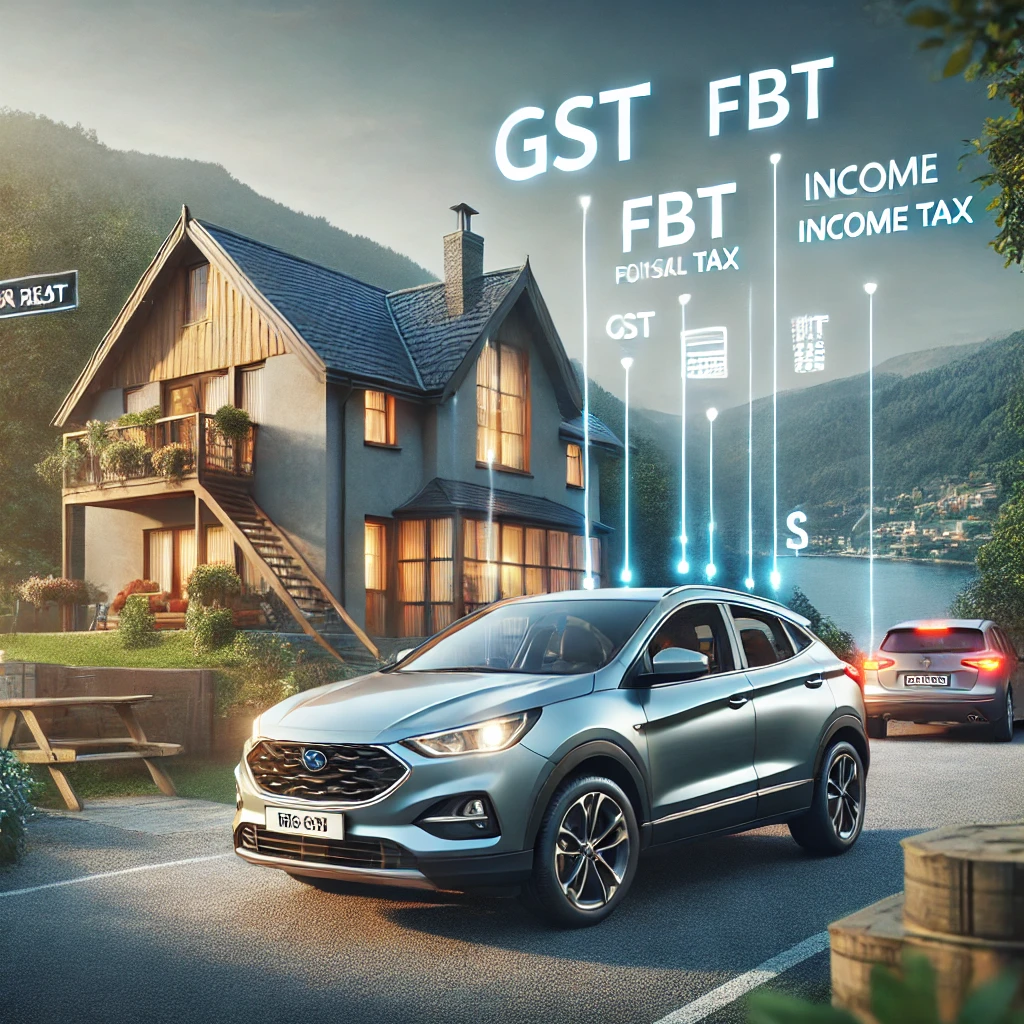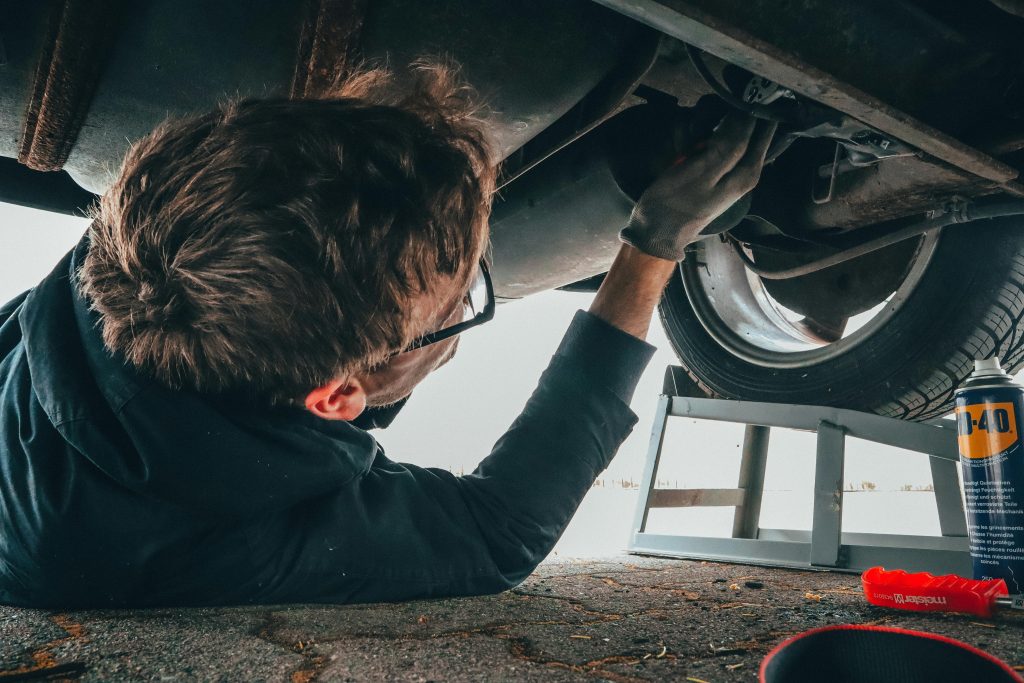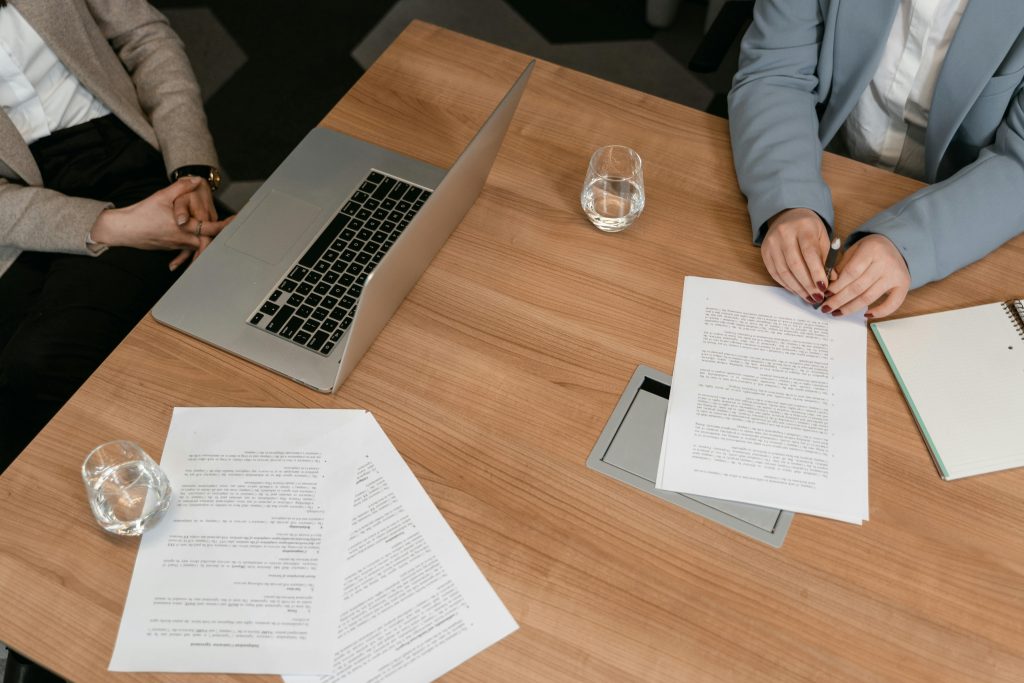You’re running a business, and now you need a business vehicle. Do you lease or buy? Everyone’s got an opinion, but the truth is—it depends.
Some swear by leasing because of the low upfront costs and predictable monthly payments. Others prefer buying to build asset ownership and avoid ongoing lease agreements.
But here’s the kicker—tax deductions, GST claims and Fringe Benefit Tax (FBT) all play a massive role in this decision. Mess it up, and you could be losing money instead of saving it.
So, let’s break it down: which option is better for your business?
The key differences between leasing vs. buying a business vehicle
So, you need a business vehicle, but you’re stuck at a crossroads—lease or buy? Let’s clear the confusion.
What does it mean to lease vs. buy a company car?
Leasing is like renting on steroids—you get the car, drive it for a few years, then hand it back. No resale worries, no long-term commitment. Buying? That’s ownership. You pay upfront (or finance it), it’s yours to use, sell, or run into the ground.
How does vehicle ownership affect your business finances?
A leased car keeps cash in your business—no massive capital expenditure, just predictable monthly payments. But you don’t own anything at the end. Buying means building an asset, but with it comes depreciation, maintenance costs, and a bigger upfront hit on your cash flow.
Upfront costs vs. ongoing expenses: Which suits your business model?
- Leasing means lower initial costs, steady monthly payments, but no ownership.
- Buying means higher upfront costs, potential tax deductions, but also ongoing maintenance.
If cash flow is king, leasing keeps things smooth. If you prefer long-term value, buying might be the move. Which suits your business best? Let’s keep going.

The financial & tax implications of leasing vs. buying
This is where things get real. Lease or buy, it’s not just about the monthly payments—it’s about how the numbers stack up after tax. Get it right, and you could be saving thousands. Get it wrong, and, well… let’s not go there.
Is leasing a car tax deductible in NZ?
Yes, but not always the way you think. If the vehicle is used for business, lease payments are generally tax deductible. But there’s a catch—if you’re using it for personal trips, the IRD sees it differently. You might still get hit with fringe benefit tax. More on that in a second.
Can you claim GST on a business vehicle purchase?
If you buy a vehicle for business use, you can usually claim the GST back. But if you use it for both work and personal, you’ll only get a partial claim. The IRD isn’t handing out free money, so make sure your records are solid.
What are the FBT rules for company cars?
Fringe benefit tax is where a lot of business owners trip up. If your company car is available for personal use—even if it just sits in your driveway on weekends—you could be paying FBT. Leasing or buying doesn’t change that. The only way around it? Keep it strictly for business, or structure your setup smartly.
How does depreciation work for business vehicles?
When you buy a car, it loses value. That’s where depreciation comes in. The good news? You can claim it as an expense. The bad news? The IRD has limits on how much you can deduct each year. It’s a slow game, but if you plan on keeping the car long-term, it’s something to factor in.
Leasing skips the whole depreciation headache, but you don’t get an asset at the end. So, what’s the best play for your business? Let’s break it down.

Which Option is best for your business?
Lease or buy? It’s the classic business vehicle dilemma. One keeps cash in your pocket, the other builds an asset. One gives you predictable costs, the other gives you full control. There’s no one-size-fits-all answer, so let’s break it down.
Advantages and disadvantages of leasing a vehicle
Leasing is like a subscription—you get a car, pay a fixed amount each month, and give it back at the end. No resale headaches, no surprise costs. But it also means you never actually own anything.
| Pros of Leasing | Cons of Leasing |
|---|---|
| Lower upfront cost | No ownership—car goes back at the end |
| Predictable monthly payments | Limited by mileage restrictions |
| Tax deductible lease payments (if business use) | May require a deposit upfront |
| No depreciation worries | Fringe Benefit Tax (FBT) may apply |
| Maintenance often included | Can’t modify the vehicle |
| Easy to upgrade to a new car regularly | Early termination fees can be expensive |
Leasing works well if you want to keep cash flow steady, prefer hassle-free maintenance, and don’t mind switching vehicles every few years. But if you want long-term value, buying might be the better move.
Advantages and disadvantages of buying a vehicle
Buying gives you full control. It’s your car, your asset, your rules. But it also means you’re stuck with depreciation, maintenance, and potential resale headaches down the line.
| Pros of Buying | Cons of Buying |
|---|---|
| You own the vehicle outright | Higher upfront costs |
| Can claim depreciation and GST (if applicable) | Monthly loan repayments (if financed) |
| No restrictions on mileage or modifications | Ongoing maintenance and repair costs |
| No lease contract or early termination fees | Vehicle loses value over time (depreciation) |
| Can be used for as long as needed | Resale process can be time-consuming |
Buying makes sense if you want an asset in your business, plan to keep the car long-term, and don’t want to be tied to a lease agreement. But if keeping up with cash flow is a priority, leasing might be the smarter option.

Which option is better for small businesses and freelancers?
The right choice depends on your business needs.
- If cash flow is tight, leasing helps keep upfront costs low.
- If you drive a lot, buying avoids mileage limits.
- If you need tax deductions, both options have benefits—but FBT and GST rules can make a difference.
- If you want flexibility, leasing lets you upgrade every few years.
There’s no perfect answer, just the right one for your situation. What’s next? Let’s look at how to make the best choice.
Making the right choice
Lease or buy—it sounds simple until you start digging into the details. The best choice depends on how you use the vehicle, how much cash you have, and what works best for your business in the long run. Let’s break it down.
How will you use the vehicle?
Think about your daily driving habits. If you’re clocking up high mileage, a lease might not be ideal—most contracts have limits, and exceeding them means extra charges.
Take John, for example. He runs a plumbing business and drives from site to site every day. A lease would be a nightmare for him because he’d blow past the mileage cap in the first year. Instead, he bought a second-hand van, claimed the GST, and wrote off depreciation. It made more sense for his business.
But then there’s Sarah, a marketing consultant who only drives to client meetings a few times a week. She leases a small hybrid car with maintenance included. No upfront costs, no repair bills, just a fixed monthly payment. For her, leasing is the better deal.
How much can you afford?
Buying means a big upfront payment or taking on a loan. Leasing spreads the cost into manageable monthly payments, but you never actually own the car.
James, a startup owner, had the option to buy a vehicle outright but chose to lease instead. His reasoning? He needed that cash for marketing and hiring staff. A lease kept his costs predictable while he focused on growing his business.

What are your long-term business goals?
If you’re planning to keep the vehicle for a decade, buying usually makes more sense. If you like upgrading to newer models every few years, leasing lets you do that without the hassle of selling an old car.
Mike owns a small construction company and bought a ute five years ago. It’s still going strong, fully paid off, and every year he claims depreciation. On the other hand, Emma, who runs an executive transport service, leases her fleet. Her clients expect premium, modern vehicles, and leasing allows her to swap them out every few years without a massive upfront cost.
No two businesses are the same. The right option depends on how you operate, what you can afford, and where you see yourself in the next few years. So, what’s your move? Have a quick look on this online calculator to help you to make the final call.
Final Thoughts
Lease or buy? There’s no one-size-fits-all answer. It all comes down to cash flow, tax benefits, usage, and long-term goals.
If you want low upfront costs, predictable monthly payments, and easy upgrades, leasing might be the smarter choice. But if you prefer ownership, long-term savings, and no mileage restrictions, buying could be the better investment.
The key is to crunch the numbers and think about how the vehicle fits into your business strategy. Still unsure? Talk to an accountant or financial advisor to see which option works best for your situation.
Need help making the right call? Get in touch today, and let’s find the best solution for your business.
